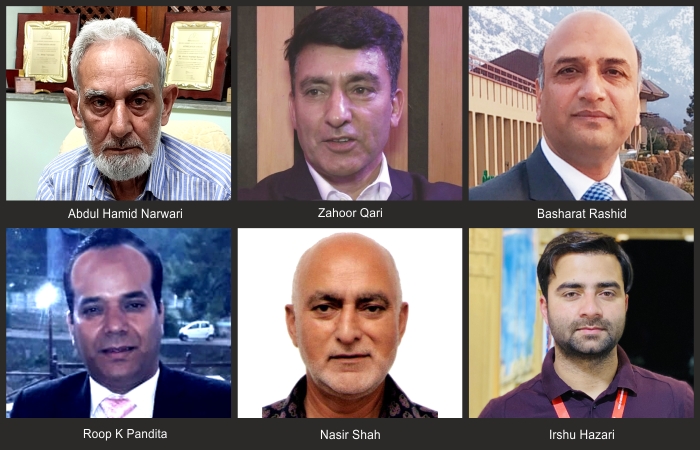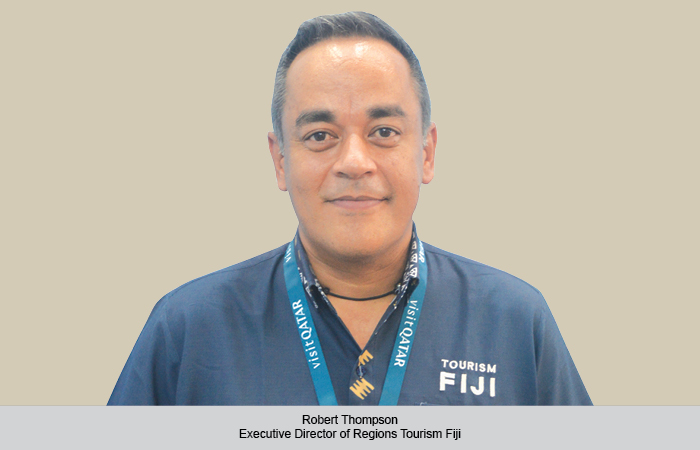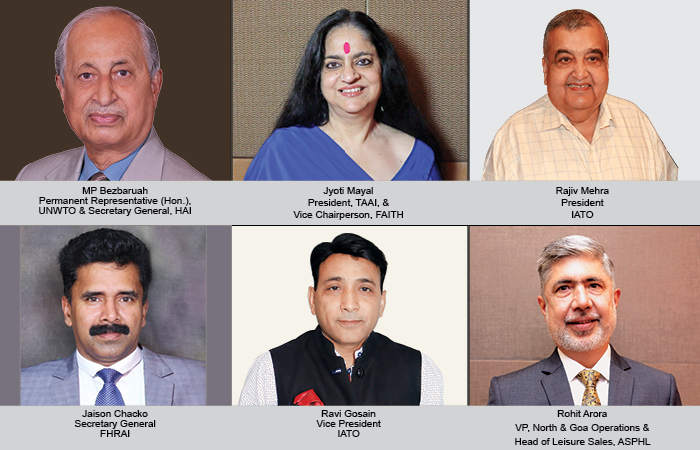The Kashmir valley was one of the most frequented destinations after the first lockdown was lifted. However, the good days didn’t last long and the second wave bereaved the destination of tourists. Now, the vaccination drive and the number of positive cases going down is seeing travel and hospitality stakeholders pinning hopes on domestic tourists once again.
Nisha Verma
When international travel halted because of COVID in 2020, it was the domestic destinations that picked up after the lockdown was lifted. Kashmir was the go-to destination for most domestic travellers. Abdul Hamid Narwari, Chapter Chairman, ADTOI – J&K Chapter, says,“We received good number of domestic tourists from Diwali 2020 onwards till March-end. Kashmir was almost sold-out till June 15, 2021, but unfortunately second wave came, and we started receiving cancellations starting March 15 onwards. By first week of April 21 almost all bookings were cancelled,” he said.
Post-COVID boom in business
Zahoor Qari, Chairman, TAAI-J&K Chapter, agrees, “Almost all hotels were sold out especially at Gulmarg and Pahalgam. These destinations had become overcrowded. Many Bollywood people had shown their presence in the valley. Also, organising winter games brought our valley in the limelight throughout the world.”
The hotels still are gushing over the business that came their way at the time. Basharat Rashid, Director of Sales – Vivanta Dalview, Srinagar, says, “We saw green shoots of travel begin to revive, with domestic travel driving demand. An increasing number of people were keen to escape the confines of home, leading to a growth of drive-cations. Further buoyed by the festive season, we saw an exponential increase in bookings, especially in winter, when Kashmir is akin to a magical fairyland.”
Roop K Pandita, General Manager, Welcomhotel Pine-N-Peak Pahalgam, echoes the thought. “At Welcomhotel Pine N Peak, the bookings saw an uptick and almost reached pre-COVID levels. There was an influx of domestic bookings from stays to dine-ins,” he says.
But the boom came with its fair share of issues. Nasir Shah, Chairman IATO, Jammu & Kashmir Chapter, reveals, “When the small portion of tourism started moving into J&K, RT-PCR test was not made mandatory by the UT Government as they firmly believed in doing Rapid Antigen Test at the entry points and at the airport. IATO, including other tourism stake holders voiced our concern with the government that RT-PCR Test must be made mandatory in the larger interest of the society. The government didn’t pay much heed to our request, resulting in increase of COVID cases before the start of second wave.”
Mayhem of second wave Irshu Hazari, Director, Euphoria Travel Services, says that he was getting good business before the second wave. “Unfortunately, I lost all bookings. The second wave was like a bad dream and dealt a serious blow to the tourism industry of Jammu and Kashmir. All the stakeholders, including hoteliers, houseboat owners, travel agents, shikara owners and others are worried in the valley due to 90% cancellation of bookings.The industry has suffered a loss of about `1500 crore during this period. However, the tourism businessmen have pinned their hopes high on the government and believe that the situation will improve soon in the Union Territory”
Whatever business that was happening, came to a grinding halt immediately from April 6, when most of the states including the UT of J&K announced lockdowns, says Shah. “The tourism arrivals dipped to near zero, but fortunately we bounced back and from June 15 onwards, good number of tourists are visiting valley. Although only high-end tourists are coming to Kashmir, owing to closure of international destinations, as about 80-85% of budget hoteliers and houseboat owners suffer without business, primarily because not many trains are available to Jammu from most of the cities. Highway presently is still posing some problem, but good news is that new Banihal Tunnel of 8.5 kms will be thrown open for public by first week of July,” he adds.
Qari further shares that almost all hotels were empty with about 90% cancellations. “Tour operators are the main sufferers who just have started their businesses after a period of more than two years, which started since August 2019 after the abrogation of Article-370,” he says.Pandita adds, “The operational performance slowed down. The second wave did leave an impact however, it sublimed owing to the pace of Indian economy bouncing back ahead of expectations and enabling factors being provided by the government.”
Case of adventure tour operators
Highlighting the plight of adventure tour operators, Narwari adds, “Tour operators involved in the adventure activity have raised huge infrastructure and equipment for white water rafting, paragliding, snow skiing, mountaineering, trekking & camping equipment and equipment for other allied soft and hard adventure activities. They have procured this equipment by getting loans from banks and other financial institutions, the adventure tour operators are facing tremendous problems as for last 3 years they have not been able to pay any EMI to banks. Instead, to make both ends meet, they have started selling their assets. These operators are at the verge of extinction. Under the situation they need a comprehensive bailout package so that they can pay their debts and raise the equipment afresh.”
Green shoots
Owing to cases being reduced across the country, there is some hope rising again in the valley. Rashid shares that the interest is visible in bookings at the hotel. “The recent phase-wise unlocking and ease of travel restrictions, especially across key cities, is now seeing a steady and significant increase in bookings at the hotel,” he shares.Even Shah says that most of the tour operators have started getting queries “as arrival since last week have picked up to nearly 600 tourists visiting Kashmir on daily basis.”
Qari adds, “This time tour operators are also exploring other destinations and are trying that we should not confine our tourists to limited destinations(Gulmarg, Pahalgam and Sonmarg). Hence, they are providing itineraries to tourist destinations and can have at least a week’s comfortable stay of their choice.”
All about leisure
However, the incoming queries are predominantly for leisure travel. “I believe whatever tourism we get here, 99% of that is only leisure tourists, as MICE has not yet started. Corporate clients have started visiting valley too since last fortnight,” shares Shah.
For Vivanta Dalview, Srinagar as well, “leisure travel is leading with revival of domestic travel, with many guests opting for long stays with remote working continuing to be a trend for many,” adds Rashid.
Better days ahead
The industry believes that business would pick up now and things would certainly improve. “The penetration of the vaccination drive is helping bolster confidence in travel,” says Pandita. “We all live on the hope that business in coming months should improve despite July and August being a lean period in Kashmir,” opines Shah.
Narwari hopes that things get better now. “The people of Kashmir are facing almost three years of lockdown now and tourism is providing vital role in Jammu & Kashmir GDP,” he points out.While business would certainly revive, says Qari, “We are of the hope that it will be a good season provided the third wave will not hit us again. Presently our focus is on domestic tourism and it will be satisfactory.”
The same thought is expressed by hospitality players. “We have again begun to see an uptick in travel with the recent unlock across key metros and a gradual relaxation of travel restrictions in the state,” informs Rashid.
 TravTalk India Online Magazine
TravTalk India Online Magazine





